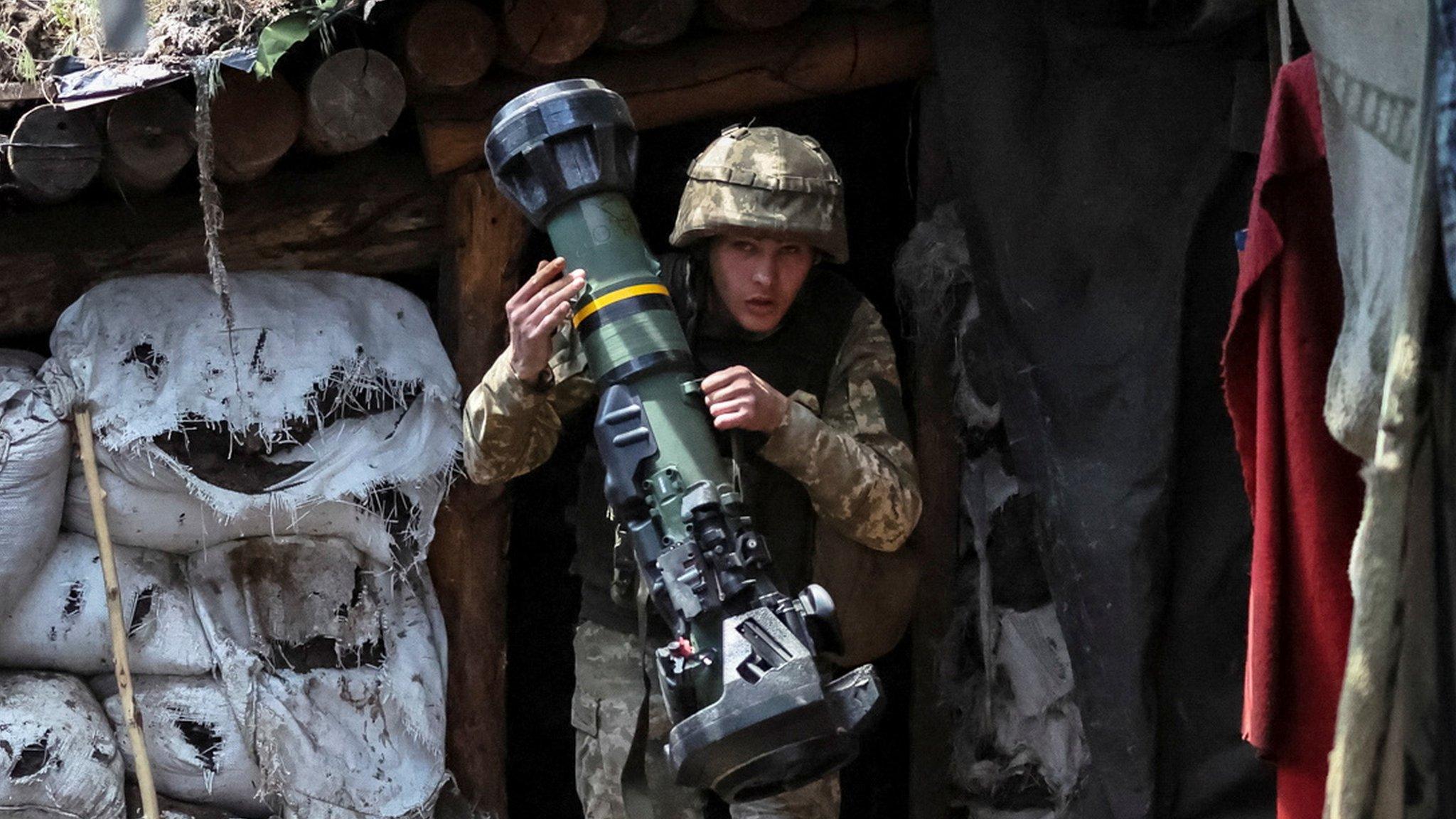UK citizen army: Preparing the 'pre-war generation' for conflict
- Published
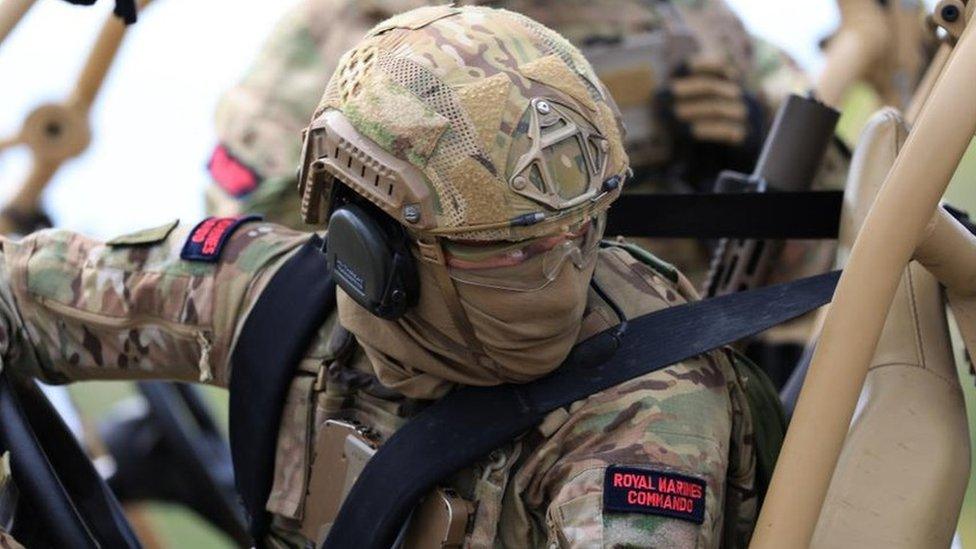
Talk of wider war in Europe and the potential need for mass mobilisation or a "citizen army" may sound alarming. But the head of the British Army Gen Sir Patrick Sanders is not alone in issuing a national call to prepare for a major conflict on European soil.
Last week, another senior Nato military chief said countries needed to be on alert "and expect the unexpected". Adm Rob Bauer, who heads the alliance's military committee, said the public needed to change their mindset for an era "when anything can happen at any time".
The UK's defence secretary has also warned that we need to be prepared for a war. In his first major speech on defence, Grant Shapps said the country was moving from a "post war to a pre-war world".
He highlighted numerous threats, but there is one common thread amid all these warnings - Russia.
Germany's Defence Minister, Boris Pistorius, recently told a German newspaper "we have to take into account that Vladimir Putin might even attack a Nato country one day". While he said such an attack is unlikely now, "our experts expect a period of five to eight years in which this could be possible".
Russia's invasion of Ukraine has focussed the West's military minds.
As Gen Sir Patrick Sanders stated several times in his speech on Wednesday, "Ukraine really matters". Russia's ambitions, he said, were not just about seizing territory but "about defeating our system and way of life politically, psychologically and symbolically".
How are other countries preparing?
There is a sense in the upper echelons of the British military that many politicians and most of the public have not grasped the threat they see. It is the duty of the military to analyse that threat, and they still might be proved wrong. But European nations closer to Russian borders appear to be taking it more seriously.
Gen Sanders specifically mentioned Sweden. Earlier this month, its civil defence minister told a defence conference "there could be a war in Sweden". Carl-Oskar Bohlin asked the public "have you considered whether you have time to join a voluntary defence organisation? If not - get moving!" His remarks were backed up by the country's top military commander, who said Sweden should prepare itself mentally.
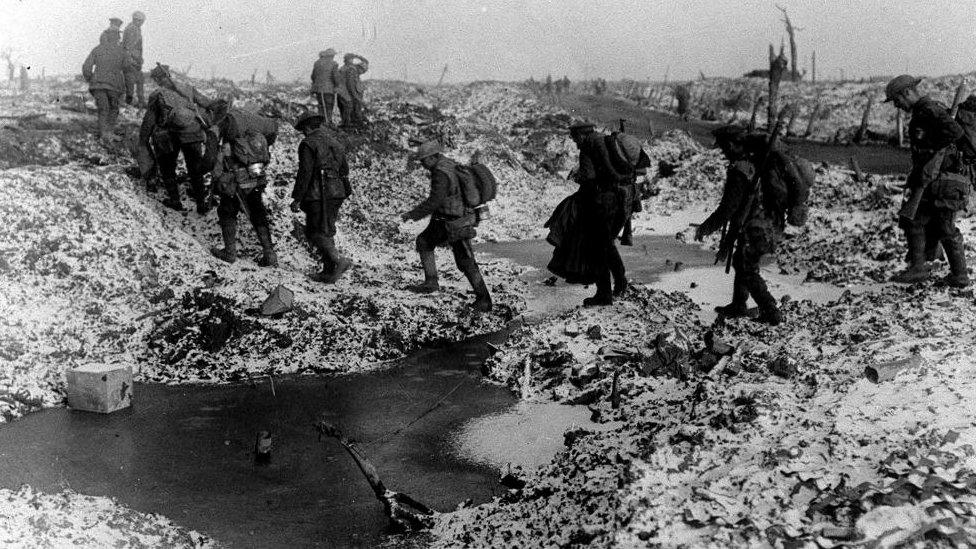
Conscription was needed during both World Wars but has not been used in the UK since 1960
Some in the country criticised the remarks as alarmist. But others have responded by "prepping for war" - stocking food and fuel.
A number of European countries also rehearse for civil emergencies - with exercises that involve ordinary citizens as well as the military. It is often called total defence.
Jailed for refusing conscription
A number of northern European countries, including Sweden, already have a form of conscription for their armed forces.
Conscription requires young men and women to serve for a limited time in uniform. It means that some of the population will have had some military training - and can then be assigned to reserve units should war break out.
In Sweden and Norway, conscription is partial - not everyone gets drafted. But it boosts the strength of the professional armed forces, which is often relatively small.
Finland, Nato's newest member and a country which has an 800-mile border with Russia, has wider conscription. Around 80% of the male population complete some form of military service. Refusal can mean a jail sentence, though there is the option of civilian service out of uniform too.
The overall effect means Finland can muster one of Europe's largest armies. The size of its active armed forces is only 19,000 personnel, but it can call on another 238,000 reserves.
Is UK conscription for a citizen army a realistic plan?
In the UK, National Service - the country's old name for conscription- ended in 1960. There are no plans to bring it back.
Gen Sanders was not calling for conscription in his speech. He is a strong believer in a professional army made up of volunteers. But he was making the point that if war broke out troop numbers would be too small.
Cuts have already seen the size of the British Army fall from more than 100,000 in 2010 to around 73,000 now. Gen Sanders said that within the next three years the British Army needed to be 120,000 strong with the addition of reserves. But he said even that is not enough - so the Army should be designed to expand rapidly "to enable the first echelon, resource the second echelon, and train and equip the citizen army that must follow".
He added that: "Ukraine brutally illustrates that regular armies start wars; citizen armies win them."
So, what did he mean by a citizen army? He was not making a case for conscription or for an imminent call up of volunteers. Instead, he was urging Britain to prepare for a mass mobilisation of tens of thousands of people, should war break out. That would require planning and a change of mindset in government.
Downing Street does not seem keen - it said the general's hypothetical scenarios were not helpful.
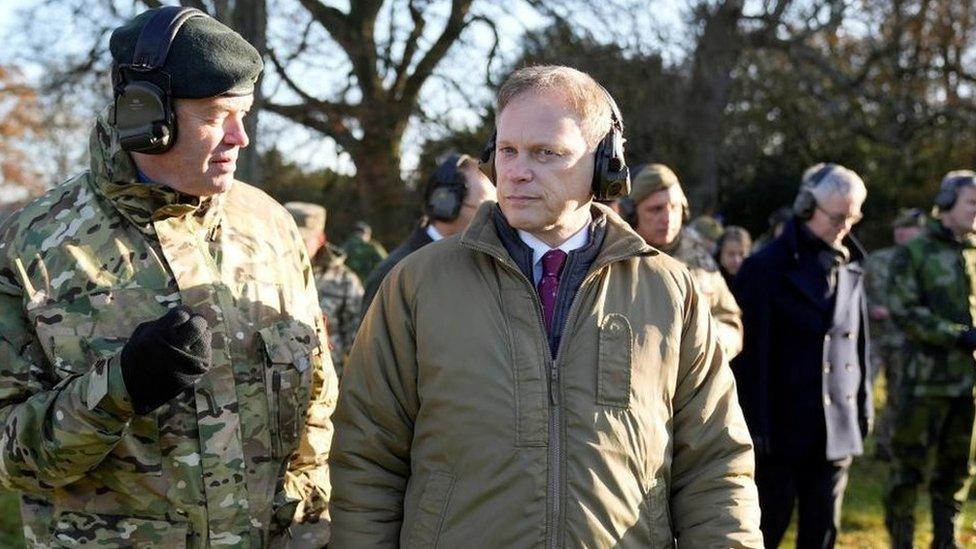
General Patrick Sanders and Defence Secretary Grant Shapps have both warned of future wars
Yet the Army is already looking at how it might create a citizens' army. One Whitehall source told the Times that the training of Ukrainian civilians on UK soil could act as a rehearsal for rapid Army expansion.
To train and equip that larger army would inevitably require more money. The government says it wants to spend 2.5% of national income on defence - but has still not said when.
Gen Sanders' speech was intended to be a wake-up call for the nation. But without political support, the mindset of a country that does not feel like it is about to go to war is unlikely to change.
One ex senior minister suggested to me that there was a generational divide between those who had lived with the threat of the Cold War era, and those who had not. The former minister, currently a serving Conservative MP, pointed out that the prime minister grew up without that existential threat.
Related topics
- Published24 January 2024
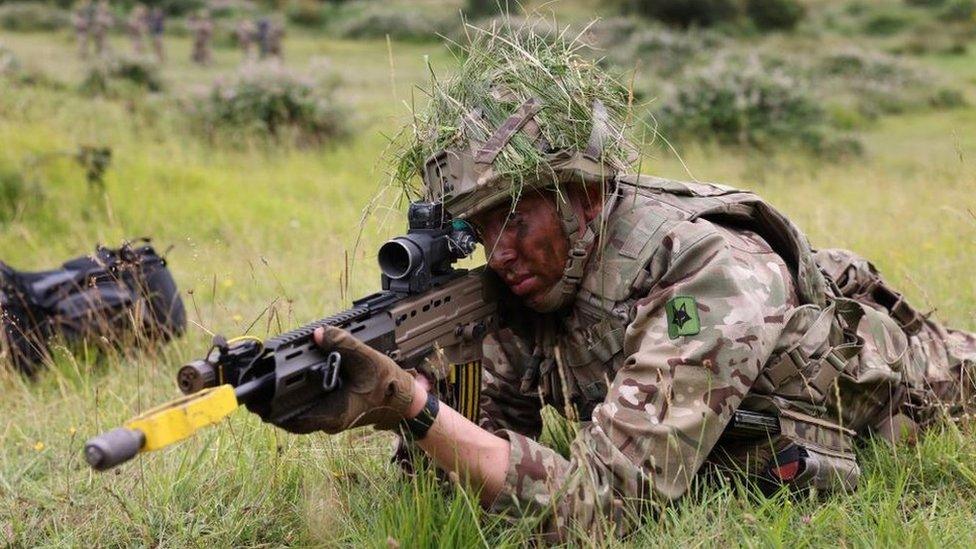
- Published19 June 2022
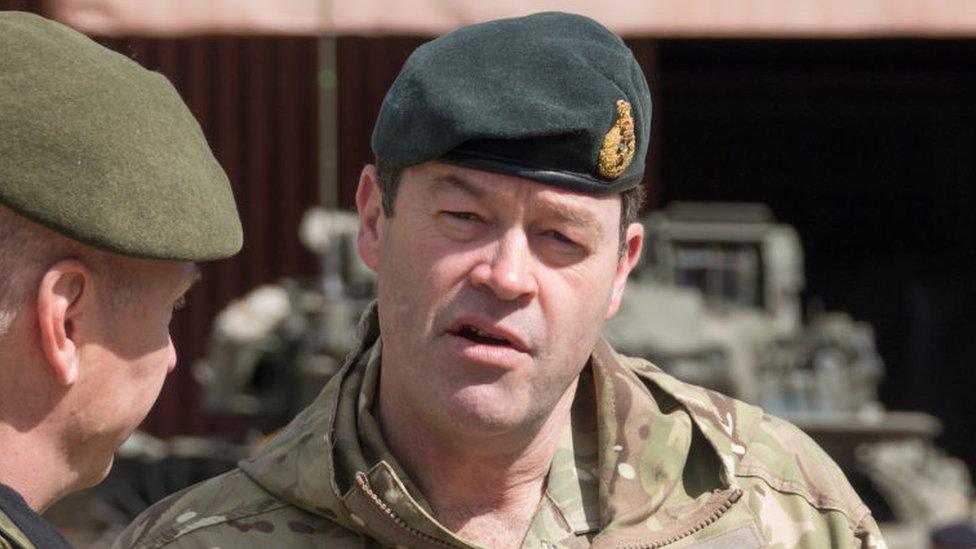
- Published16 March 2021
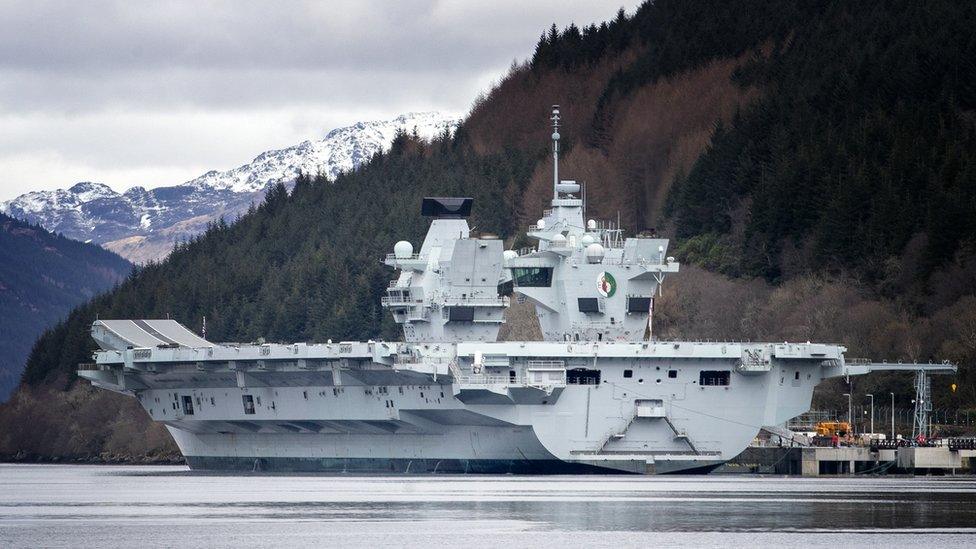
- Published23 February 2023
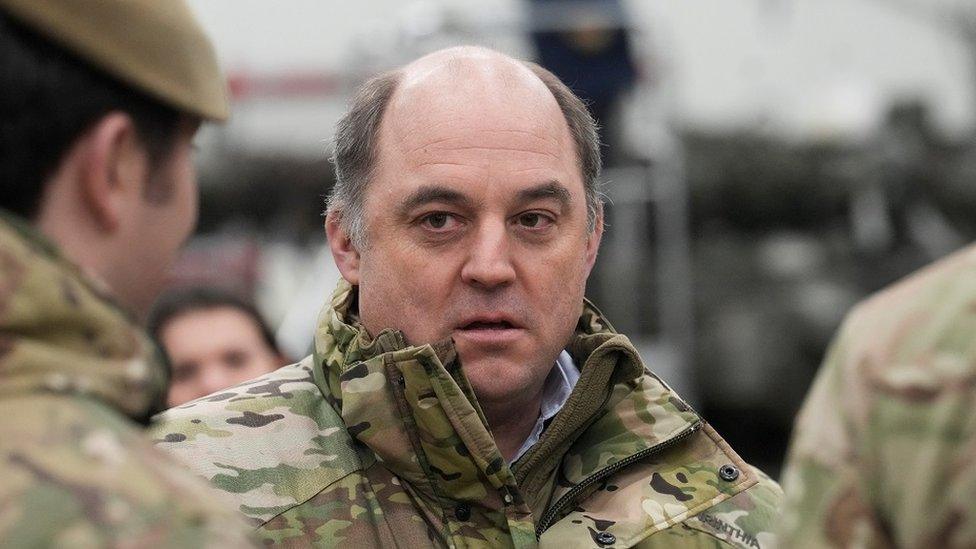
- Published30 June 2022
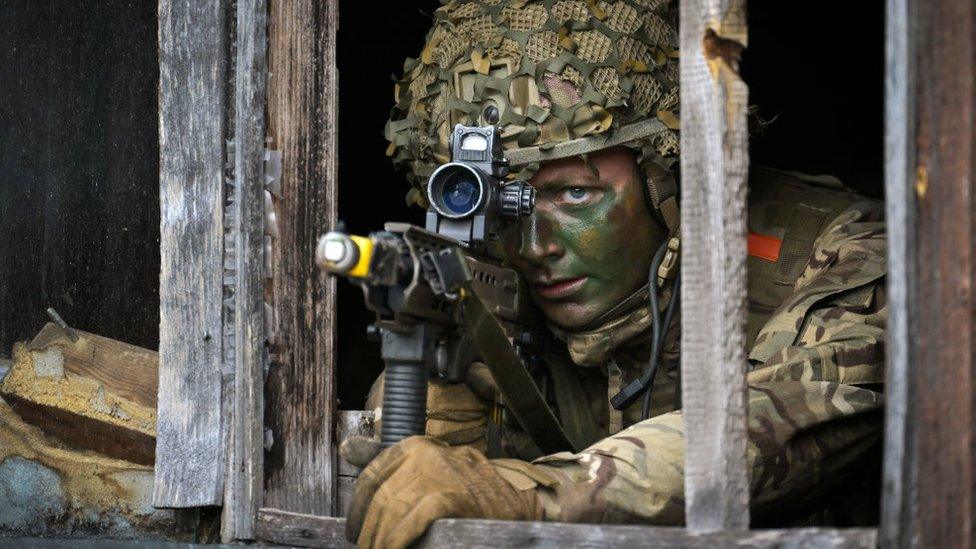
- Published28 June 2022
